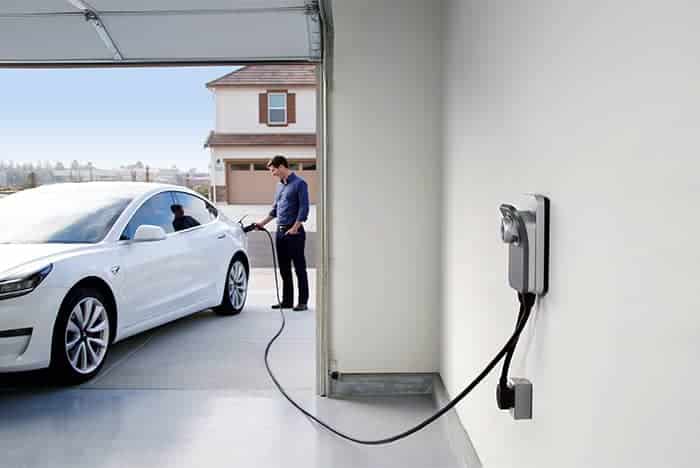As the world transitions towards sustainable transportation, electric vehicles (EVs) have become increasingly popular. With this rise in popularity comes the need for convenient and efficient charging solutions, particularly at home where 80% of EV Charging occurs. Selecting the right EV charger for home use is crucial for ensuring a seamless charging experience and maximizing the benefits of electric vehicle ownership. Here’s a comprehensive guide to help you navigate the process of choosing the perfect EV charger for your home.

Charging Speed
One of the primary considerations when choosing an EV charger is the charging speed it offers. Charging speed is measured in kilowatts (kW), and it determines how quickly your EV’s battery can be replenished. Level 1 chargers typically provide 120 volts and charge at a rate of around 5 km of range per hour, while Level 2 chargers offer higher voltage (240 volts) and can charge at a rate of 16 to 96 km of range per hour, depending on the charger’s power output. Level 2 chargers are recommended for most homeowners as they provide significantly faster charging times compared to Level 1 chargers.
Power Output
The power output of an EV charger is another crucial factor to consider. EV chargers typically range from 3.6 kW to 19.2 kW or higher. Higher power output chargers can charge your EV faster, but they may also require additional electrical infrastructure and incur higher installation costs. Consider your EV’s battery capacity, your daily driving habits, and available electrical capacity when choosing the power output of your EV charger. Do not forget that your vehicle is going to stay plugged in most of the night.
Plug Type and Compatibility
Different EVs come with different charging port types. Ensure that the EV charger you select is compatible with your vehicle’s charging port. Common plug types include SAE J1772 for most EVs, Tesla’s proprietary connector, and CHAdeMO or CCS for DC fast charging. Some EV chargers come with adapters or interchangeable connectors to accommodate various plug types. While most of the car manufacturers are moving to the NACS connector the transition will take time.
Wi-Fi Connectivity and Smart Features
Many modern EV chargers like the ChargePoint Home Flex come equipped with Wi-Fi connectivity and smart features that allow you to monitor and control charging remotely via a smartphone app or web portal. These features can provide insights into your charging habits, allow you to schedule charging sessions during off-peak hours to take advantage of lower electricity rates, and even integrate with smart home systems for added convenience.
Installation Requirements
Before purchasing an EV charger, consider the installation requirements, including electrical capacity, wiring, and mounting location. Level 2 chargers typically require a dedicated 240-volt circuit, which may necessitate upgrades to your home’s electrical panel. Make sure to select a licensed electrician with EV charger experience to assess your home’s electrical infrastructure and ensure that it can support the chosen EV charger.
Warranty and Durability
Look for EV chargers from reputable manufacturers that offer warranty coverage and have a track record of reliability and durability. A longer warranty period provides added peace of mind and protection against any potential defects or malfunctions.
Cost and Value
Finally, consider the overall cost of the EV charger, including the purchase price, installation costs, and any additional accessories or features. While it may be tempting to opt for the cheapest option available, investing in a high-quality EV charger from a trusted brand can save you money in the long run by providing efficient and reliable charging performance.
In conclusion, selecting the right EV charger for your home involves considering factors such as charging speed, power output, compatibility, smart features, installation requirements, warranty coverage, and overall value. By carefully evaluating these factors and choosing a charger that meets your specific needs and preferences, you can enjoy the convenience and benefits of home EV charging while maximizing the efficiency and performance of your electric vehicle.
